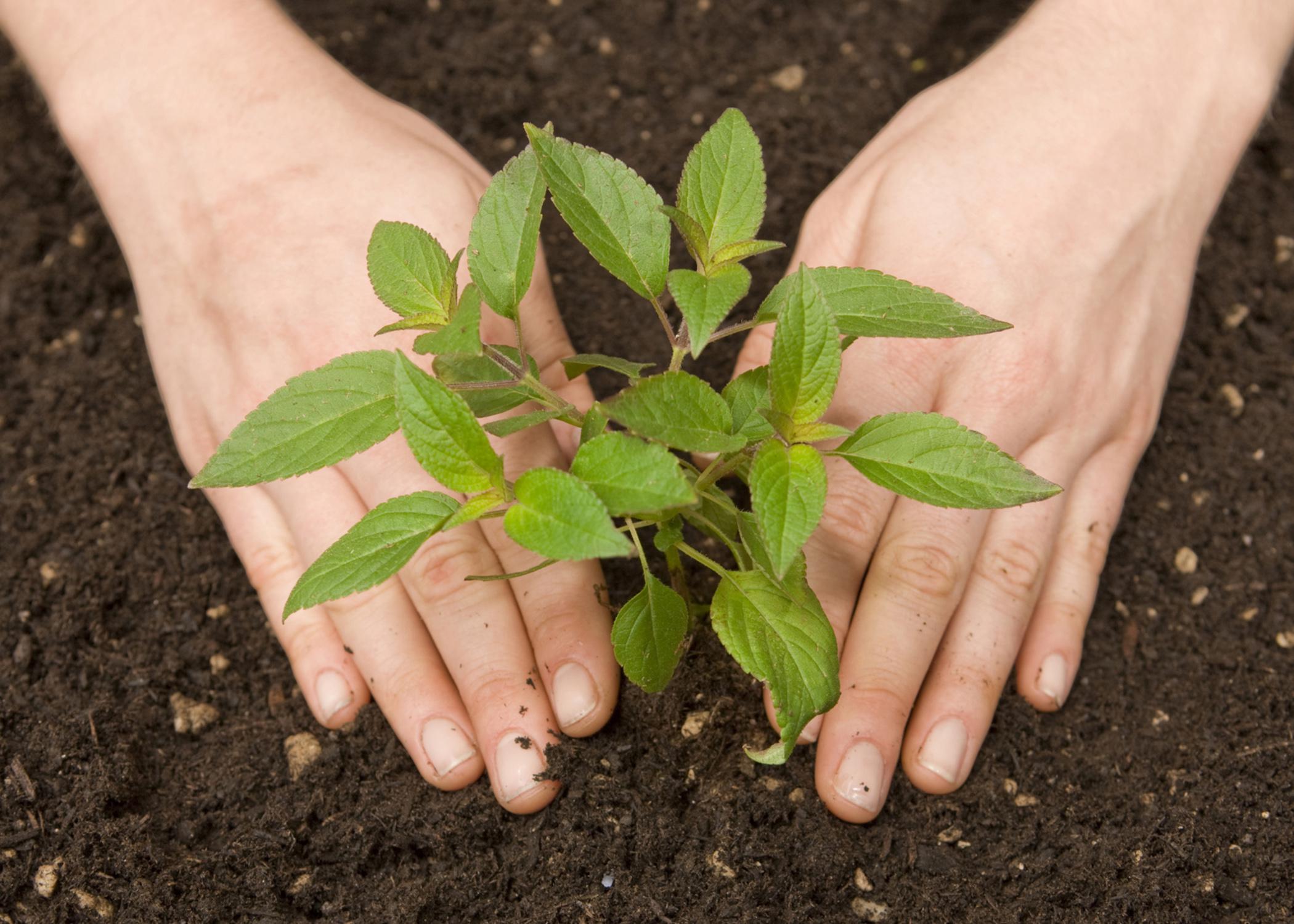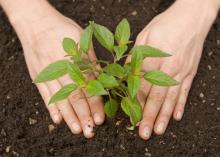Information Possibly Outdated
The information presented on this page was originally released on June 24, 2013. It may not be outdated, but please search our site for more current information. If you plan to quote or reference this information in a publication, please check with the Extension specialist or author before proceeding.
Add mulch, compost to boost landscape health
Some summer days -- okay, honestly, most summer days -- seem just too hot to do anything in the garden and landscape. But a couple of tasks will pay off in the long run with better landscape performance. You guessed it: this column is all about mulching and composting.
Whether you are an experienced gardener or have a brown thumb, you can mulch like a pro. Few gardening activities have as much of an impact as mulching. Mulch reduces erosion, influences soil temperature, helps control weed growth and gives your landscape a well-groomed look.
Unlike many garden activities, mulching has no deadline. You can mulch in the spring or summer to give the landscape a fresh look for any garden gathering. Or, you can wait until the off-season when you may have more time available.
Mulch must be permeable to allow both air and water to pass freely through it. There are two choices for mulch types, organic and inorganic.
Organic mulches help conserve moisture to keep soil temperatures cooler in the summer and warmer in the winter. Organic mulch decomposes or breaks down, which helps build better soil. For that reason, organic mulches need to be replenished every year or two. Classic organic mulches include pine straw, bark and shredded leaves. Specialty mulches include pecan shells and coir chunks, which are made from the husks of coconut shells.
Inorganic mulches tend to raise soil temperatures in the summer and lower them in the winter. They cause greater day-to-night temperature fluctuations. Stone and gravel are commonly used, or you can try products made from recycled tires.
Weed barriers or ground fabric are commonly used to block weeds growing from seeds already in the soil below the mulch. These products are initially effective when using organic mulch because weed seed will germinate but won’t grow through the barrier. The next year, however, weed seed blown in on top of the organic mulch will grow on top of the barrier. The garden is a vicious arena, a battle between you and the weeds.
Ground fabric is more effective when using inorganic mulching materials.
With our long gardening seasons, we are always cleaning up the landscape and generating piles of leaves, clippings and pruned branches. In many cities, this yard trash ends up at the curb for pickup. Some of this will be chipped and composted by the city for municipal use. The rest may end up in the landfill, which is not ideal.
Why not put these materials in your compost bin? If you are not already composting, you should know the value of this homemade material. There’s a reason gardeners call compost “black gold.”
The benefits of adding compost to your garden and landscape are numerous, and your plants will be most appreciative.
You can use compost as a soil amendment, as mulch around your plants, or both. When used as a soil amendment, compost adds texture and improves water-holding capacity in sandy soils. If you have a tight clay soil that doesn’t drain well, the addition of compost will improve soil drainage.
Other benefits include keeping garden soil healthy with increased earthworm populations that help to aerate and loosen the soil. Composting also recycles essential nutrients that feed plants. Maybe the main benefit of interest to thrifty gardeners: Compost is free. No more buying bags of soil conditioners and amendments.
Help your plants beat the summer heat with beneficial compost and mulch, and you will reap the rewards of a beautiful landscape year-round.








